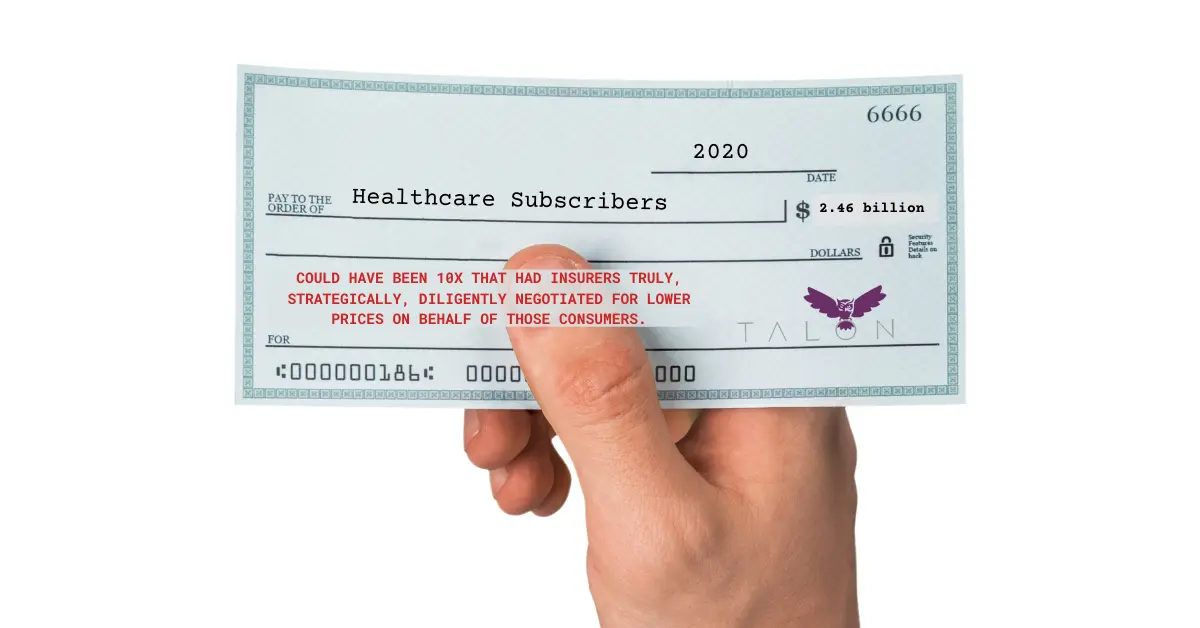
Ever since 2012, Americans have received rebate checks from their health insurers when the Medical Loss Ratio doesn’t “measure up” to the 80/20 Rule. In simple terms, the Rule means that insurers must spend 80 percent of their revenue from premiums to pay for the healthcare of their subscribers. The other 20 percent is theirs to keep. What hasn’t been spent of that 80 percent has to be returned to subscribers.
An example would be if subscriber fees totaled $5 billion, and $3 billion were spent on healthcare for subscribers, then $3 billion plus $600 million (20 percent) is the total revenue that flows to the insurance company. That’s $3.6 billion, and the difference between that and the $5 billion must be returned to consumers.
In 2020, $2.46 billion was returned. That’s great news, right? No.
Rebate checks look good, but when Minnesota’s former Senator Al Franken championed them as part of the Affordable Care Act, he didn’t think about how the 80/20 rule would affect the psychology of health insurance companies. Because if those companies are limited to making 20 percent of what they spend on health care for their subscribers, guess what they’re going to be consciously or unconsciously motivated to do: Spend more.
Yup. Spend more. Unbelievable, isn’t it? But, really, it’s just arithmetic. I would bet anything that the $2.46 billion returned to consumers in 2020 could have been double that had insurers truly, strategically, diligently negotiated for lower prices on behalf of those consumers. But, guess what, if they had, then their 20 percent of total health care spend would have been a smaller number. Because they don’t get 20 percent of what they return, after all. So why try to return more?
Health care insurance companies can’t be blamed for being subject to the same economic and psychological forces as the rest of humanity. Tell them that they can do lots more work negotiating lower prices from health care providers and that they will earn less, and you’ll get lots of blank stares back.
That’s why the truly good news about the Biden Administration issuing its Interim Final Rule related to the No Surprises Act and the prior issuing by the Trump Administration of the Transparency in Coverage Rule should be accompanied by rescinding the 80/20 Rule.
We have powerful new tools and incentives at hand that promise to revolutionize health care economics. The Biden Administration and Congress should surgically remove the cancerous 80/20 Rule, while they’re at it.
-Mark Galvin, President and CEO
